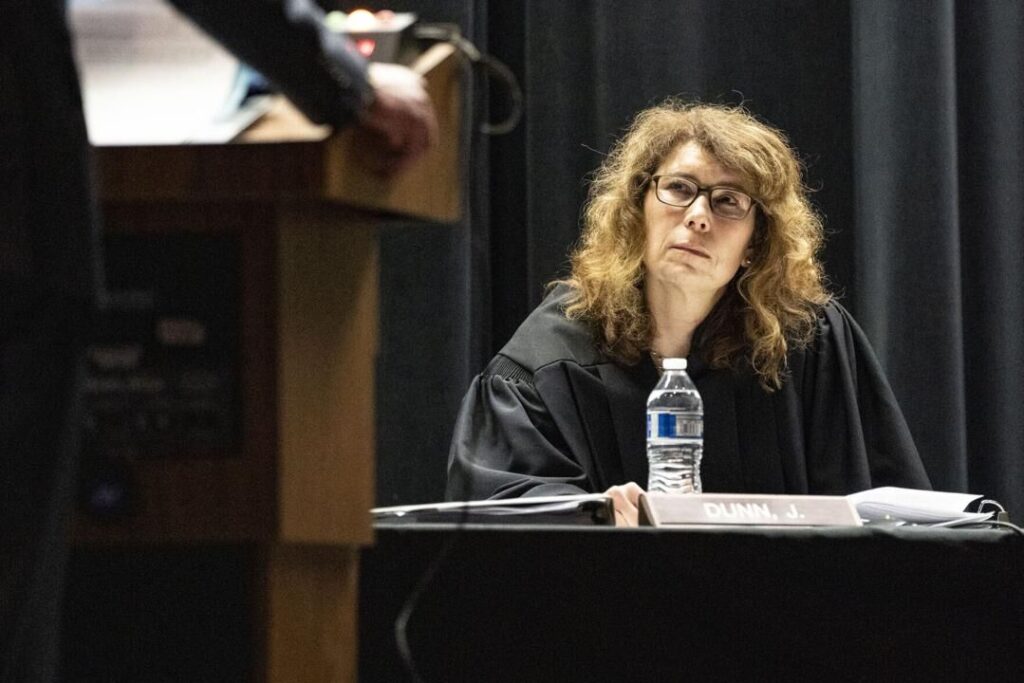Mesa County animal cruelty convictions overturned for officer’s unconstitutional search
Colorado’s second-highest court determined on Thursday that a Mesa County animal control officer gathered evidence of a cruelty offense from a woman’s property in violation of the Fourth Amendment, necessitating a new trial.
The constitutional prohibition on unreasonable searches and seizures generally requires police to obtain a warrant or else rely on an established exception to the warrant requirement. Under an exception known as “exigent circumstances,” the officer testified he took photographs and seized a dead dog’s body because he was concerned the dog would quickly decompose in the heat.
However, a three-judge panel for the Court of Appeals concluded that explanation was insufficient to justify the officer’s warrantless collection of evidence about Henri, the dog.
“As a result, the prosecution failed to meet its burden of showing that, in the time that it would have taken to procure a warrant, there was a real and immediate threat that Henri’s body would decay to the point that a cause of death could not be determined,” wrote Judge Matthew D. Grove in the Aug. 29 opinion.
In the underlying case, MacKenzie Anne Gillespie adopted Henri in the spring of 2020. She quickly discovered he had extreme separation anxiety, to the point of destroying her home or escaping from the yard if left alone. Neighbors complained about Henri and Mesa County Animal Services warned Gillespie that Henri could strangle himself if tied up outside. Gillespie inquired about returning Henri to the shelter, but she could not afford the fee.
On Aug. 11, 2020, a neighbor contacted the county to report Henri was tangled and struggling in the backyard on a hot day. Officer Jason LeMaster went to Gillespie’s home in Clifton, but she was not there. He left a notice on her front door, then decided to walk down a gravel driveway to the back because it appeared to be the primary entrance to the home.
Around back, LeMaster saw Henri lying on the ground wrapped in cables. Henri did not respond to calls, so LeMaster entered the backyard. He found no pulse and returned to his vehicle to call in the deceased dog. A supervisor directed him to take pictures and bring in Henri’s body. LeMaster did those things.

Prosecutors charged Gillespie with felony and misdemeanor animal cruelty offenses. Gillespie then moved to exclude all evidence obtained by LeMaster from trial, arguing it violated her constitutional rights.
District Court Judge Valerie Robison denied the motion. She reasoned LeMaster’s presence in the back of the home and his discovery of Henri was not a “search.” LeMaster had a “legitimate basis” for seeing if Henri was alive, Robison elaborated, and to collect evidence to determine the cause of death.
“Based upon the totality of the circumstances, the Court determines that law enforcement had probable cause to believe that Henri was in danger of dying and ultimately, that Henri was dead,” Robison wrote in August 2021. “Likewise, the Court determines there was probable cause to take photographs and to seize Henri’s body.”
Jurors subsequently convicted Gillespie and she received a sentence of probation plus community service.
But the Court of Appeals saw the constitutional issue differently. The panel believed there were different phases that needed separate scrutiny. LeMaster’s first entrance into the backyard — to check if Henri was alive — was justified for the purpose of rendering potential aid to the dog.
The second entrance to take photos and collect Henri’s body, however, was fueled by neither a desire to render aid nor a proven need to preserve evidence.
“Here, LeMaster’s fear that Henri’s body would decompose so quickly that it would be impossible to determine the cause of death is insufficient,” wrote Grove. Prosecutors “provided no evidence of the effect of heat on a recently deceased body, and potential hyper-accelerated decomposition is not an obvious exigency.”
The panel ordered a new trial for Gillespie with the evidence LeMaster collected to be excluded.

The Ralph L. Carr Colorado Judicial Center in downtown Denver houses the Colorado Supreme Court and Court of Appeals.
The Court of Appeals also addressed Gillespie’s argument that there was insufficient evidence to support her convictions. The panel agreed a jury could find Gillespie “knowingly tortured” Henri, as the felony offense required, based on her decision to tie him up outside without adequate shelter and water.
However, the panel also concluded prosecutors during a second trial cannot argue Gillespie committed animal cruelty through the alternate means of “needlessly” killing Henri. There was insufficient evidence during the first trial to show Gillespie knew her system of tethering Henri was “practically certain to lead to Henri’s death,” Grove wrote.
The case is People v. Gillespie.











